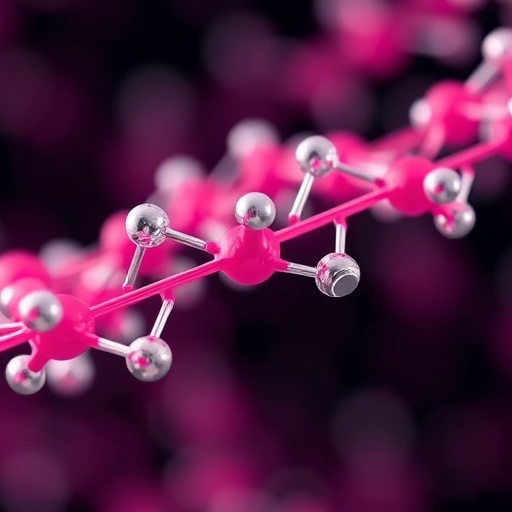PROTECT YOUR DNA WITH QUANTUM TECHNOLOGY
Orgo-Life the new way to the future Advertising by Adpathway
Global warming is heating things up, and animals that rely on the environment to control their body temperature – called ectotherms – have to keep up. Not only is the average temperature ramping up, but short-duration extreme heat events such as heat waves are becoming more frequent. Fish are ectotherms and can survive in warmer conditions, but how hot is too hot? And how do they adjust their bodies to survive heat in both the short term, such as during heatwaves, and long term? Moa Metz and her colleagues at the Norwegian University of Science and Technology explored these questions to find out how zebrafish (Danio rerio), a popular freshwater species, handle gradual warming over weeks, and how they respond to sudden bursts of extreme heat.
The researchers placed 156 adult zebrafish into three tanks set to different temperatures: cool (20°C), comfortable (28°C) and warm (35°C). After 2 weeks, they gave half of the fish from each group a short heat blast – just 3 h ranging between 31 to 39°C depending on their previous exposure. Then they investigated whether this brief heat event improved the fish's ability to withstand extreme temperatures, compared with those only exposed to constant temperatures. To do this, they gradually warmed all the fish and observed the point at which each one started tipping over – a sign that it couldn't take the heat anymore. This helped determine the maximum temperature each fish could endure.
They found that the longer the fish spent in warm water, the higher the temperature they could withstand. Interestingly, fish that experienced the short heat spike could survive even hotter temperatures than those that hadn't – even if they had already been in warm water for 2 weeks. This showed Metz and her colleagues that zebrafish don't use up all their defences during prolonged warming. Instead, they seem to hold back some reserves, ready to act fast when temperatures suddenly spike. But how do they do that?
To understand how the fish pulled this off, the researchers looked inside their brain and muscle cells. In the brain, they focused on a group of proteins known as heat shock proteins, which help protect and maintain the structure of other proteins during stressful conditions such as extreme heat. These proteins are essential for preserving cellular function. Fish kept in warm water for 2 weeks showed higher levels of heat shock proteins, while those kept in cooler water did not. However, after the short heat blast, even fish from the cooler tanks showed a sharp increase in heat shock proteins – suggesting that all zebrafish can quickly boost their protective systems when facing sudden heat.
Next, the researchers examined the fish's muscles. They looked at how stiff the membranes of muscle cells had become – a sign of longer-term structural adjustment. Fish exposed to the warmest temperatures for 2 weeks had stiffer cell membranes, which might help them withstand heat stress. However, fish from cooler tanks didn't exhibit this change, even after the short heat spike. This suggests that such structural adaptations probably take longer to develop.
Metz and her colleagues demonstrated that zebrafish can quickly raise their heat tolerance when needed, relying on fast-acting stress proteins rather than slower structural changes. This finding is important because fish in lakes and rivers may face sudden spikes in temperature, and their survival could depend on how quickly they can respond – and whether their emergency heat capacity can stretch far enough.
So what's the big takeaway? Zebrafish seem to maintain a hidden safety net. Even after weeks of warming, they're still capable of pushing their limits in an emergency – a clever survival trick that may help them face the heatwaves of an unpredictable future.
Metz M. Cowan Z.-L. Leeuwis R. H. J. Yap K. N. Lindgren M. Jutfelt F.
2025
).
Physiological mechanisms of rapid and long-term thermal acclimation in a fish
.
J. Therm. Biol.
131
,
104171
.
© 2025. Published by The Company of Biologists
2025



![RTOG Foundation Launches New Clinical Trial Investigating [177Lu]Lu-DOTA-TATE Therapy for Adult Meningioma Patients](https://bioengineer.org/wp-content/uploads/2025/11/RTOG-Foundation-Launches-New-Clinical-Trial-Investigating-177LuLu-DOTA-TATE-Therapy-for.jpeg)



















 English (US) ·
English (US) ·  French (CA) ·
French (CA) ·